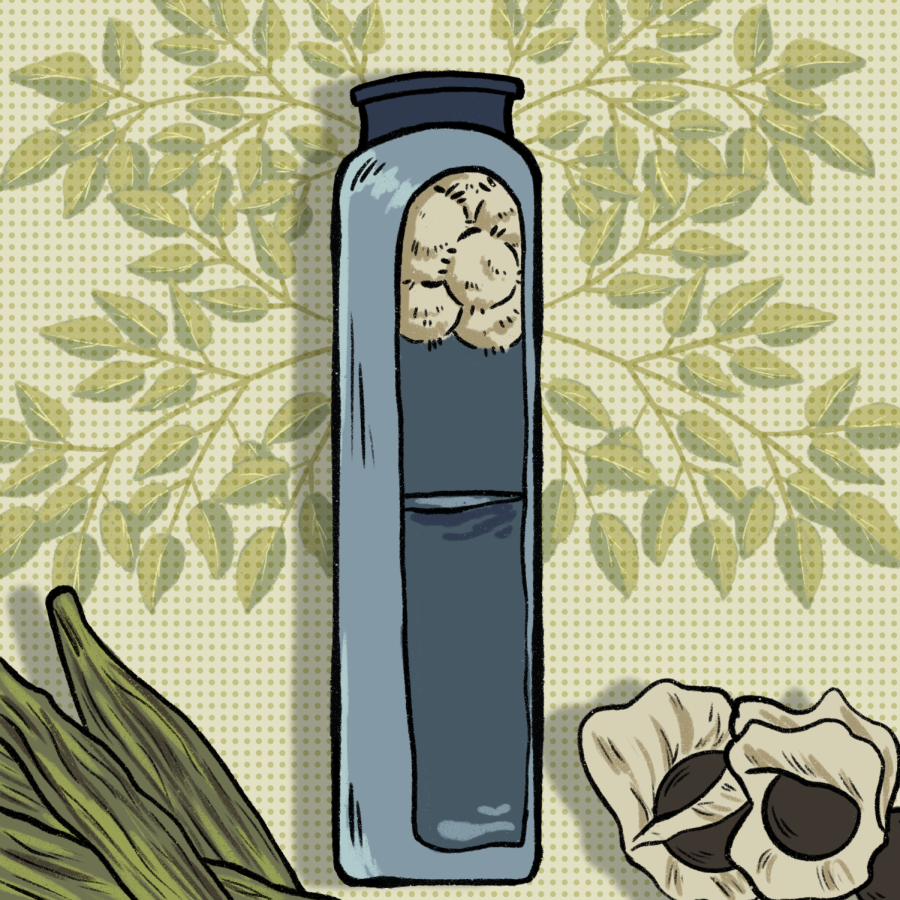UT-Austin researchers develop low-cost water filter from tree seeds, cotton balls
July 21, 2022
A UT-led team of researchers developed a low-cost, regenerative filter that removes viruses and bacteria from water using two simple, unprocessed ingredients: tree seeds and cotton balls.
Viruses are uniquely challenging to filter due to their small size, according to the study. Most low-energy water treatment processes cannot remove viruses completely, and as a result, less sustainable processes like chemical disinfection or ultraviolet radiation are used, lead author Laxmicharan Samineni said. He said this is the first time unprocessed natural fibers have been shown to remove nanoparticles like viruses with a simple filter made from the moringa tree seed proteins and cotton balls.
“Any filter that’s trying to separate particle size will need to use a lot of energy because you need to drive water flow through them for bacteria removal,” said Samineni, a chemical engineering doctoral candidate at UT. “Because of this energy requirement, we mostly use … disinfection techniques to remove viruses from water. But when you’re doing that, you’re putting chemicals in water, and disinfection — especially in water treatment — has byproducts which could be cancerous in some cases.”
A moringa filter capable of filtering 10 liters a day costs $10 to produce and is able to do so at the point of use. Samineni said the filter uses vacuum filtration, a method that maintains pressure and uses gravity to filtrate water faster.
Moringa seeds contain positively-charged proteins, Samineni said, which have antibacterial-like properties and are the key to filtering bacteria and viruses. The seeds are ground and mixed with water, creating an extract containing proteins from the seeds. This extract is then put into the cotton filter.
“When the protein solution is going through the water filter, the proteins will get attached to cotton, because cotton is negatively charged and the proteins are positively charged,” Samineni said. “Once (proteins) are coated onto a fiber, they can filter out any contaminants we are trying to filter. If you put a virus or bacteria through the filter, they can also attract them because bacteria and viruses are negatively charged.”
The moringa plant is traditionally used for Indigenous purification rituals in some African tribal communities, Samineni said.
“We have been exploring other seeds,” Samineni said. “Technically any seed that has positively-charged proteins could be used for this mechanism.”
Co-author Sophie De Respino said the filter could be used in developing countries that lack access to central drinking water filtration plants.
“We’ve also talked about potentially using these in emergency situations or for disaster preparedness,” De Respino said. “Functionality can basically be effective after three months in dry storage. Theoretically, you could … send (them) to people after hurricanes or earthquakes or any kind of natural disaster where they’re displaced.”














